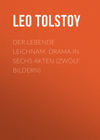Buch lesen: «The Kingdom of God is Within You; What is Art?», Seite 6
This activity is more noticeable in Protestantism, because that creed has not even the excuse of antiquity. And is not the same thing going on in the present "Revivalism," a regenerated Calvinism, which has given birth to the Salvation Army? Inasmuch as the attitude of all ecclesiastical dogmas toward the doctrine of Christ is very much the same, so are their methods of a similar character.
The attitude they have taken obliges them to make every effort to conceal the doctrine of that Christ in whose name they speak.
The disparity between ecclesiastical creeds and the doctrine of Christ is so great that a special effort is required to keep mankind in ignorance. Indeed, one needs but to consider the position of any adult, I do not say educated, but one who has assimilated superficially the current notions concerning geology, physics, chemistry, cosmography, and history, when for the first time he actually reflects on the faith impressed upon him in his childhood, and maintained by the Church, concerning the creation of the world in six days, the appearance of light before the sun was created, the story of Noah's ark and the animals preserved in it, – concerning Jesus and his divine origin as the Son of God who created all things before time existed; that this God came down to earth because of Adam's sin; that he rose from the dead, ascended into heaven, and sits on the right hand of the Father; that he will come in the clouds to judge the living and the dead, etc.
All these ideas evolved by the men of the fourth century, which had for them a certain meaning, have none whatever for us. The present generation may repeat these words, but it can never believe in them, because the statements that God dwells in heaven, that the heavens opened and a voice was heard to utter certain words, that Christ arose from the dead and ascended into heaven, that he will come again from some place in the clouds, etc., have no meaning for us.
It was possible for a man who believed that heaven was a substantial arch of limited dimensions to believe or to disbelieve that God created it, that it opened, and that Christ ascended thither, – but for us there is no sense in such ideas. Men of our time can only affirm that it is one's duty to believe all this, – which they do. But they cannot really believe in what has no meaning in it for them.
But if all these utterances are supposed to have an allegorical signification and are only intended as similes, then we know in the first place that all the churchmen will not agree to this – on the contrary, the majority insist on taking the Scriptures literally; and in the second place, that these interpretations differ greatly, and are supported by no reliable authority.
And even if a man wished to believe the doctrine of the Church as it is taught, the increase of culture, the reading of the Bible, and the intercourse among the members of different churches, form a greater and more insurmountable obstacle to belief.
Nowadays a man has but to buy the Bible for threepence, and to read the simple, indisputable words of Christ to the Samaritan woman, that the Father seeketh worshipers neither in Jerusalem nor in this or that mountain, but worshipers in spirit and truth; or the words, that a Christian should pray not like the heathen in the temples, nor at the corners of streets, but in the secrecy of his closet; or, that a disciple of Christ may call no one father or mother, – one has but to read these words to be indubitably convinced that priests who call themselves teachers in opposition to the teaching of Christ, and dispute among themselves, cannot be authorities, and that that which they teach is not Christian.
But this is not enough. If the modern man were to go on believing in miracles and never read the Bible, the fellowship with men of other creeds and professions, which is so much a matter of course in these days, will compel him to question the truth of his religion. It was natural enough for a man who had never met a believer in a creed different from his own, to think that his was the only faith; but an intelligent man has but to encounter – and that is an everyday occurrence – good and bad men of all creeds, who criticize each other's beliefs, in order to question the truth of his own religion. Now, only a man either totally ignorant or indifferent to the problems of life as dealt with by religion can remain in the faith of the Church.
What shrewdness is needed, and what efforts must the churches make, in order to go on, in the face of all these faith-destroying influences, building temples, saying masses, preaching, instructing, converting, and above all receiving for this the large compensations which all those priests, pastors, stewards, superintendents, abbots, archdeacons, bishops, and archbishops receive!
A special and supernatural effort is called for, and to this the Church responds, exerting herself more and more. In Russia, besides many other measures, they employ a simple, rude violence, by virtue of the power invested in the Church. People who shrink from an outward observance of faith and who do not conceal the fact are simply punished or deprived of their civil rights; and to those who strictly comply with the rites, privileges and rewards are granted.
So much for the Orthodoxy; but every church, without exception, makes the most of the means at its disposal, and hypnotism is one of the chief agents.
Every art, from architecture to poetry, is enlisted, in order to move and intoxicate the human soul. This hypnotic and mesmerizing influence is markedly displayed in the activity of the Salvation Army, which employs novel, and to us abnormal, methods, such, for instance, as drums, horns, singing, banners, uniforms, processions, dancing, outbursts of tears, and dramatic gestures.
Still, these methods are startling simply because of their novelty. Is not the familiar form of worship in cathedrals, with their peculiar illumination, the golden pomp, the candles, choirs, organs, bells, vestments, the weeping preachers, etc., of a similar nature? And yet, however powerful may be the influence of this hypnotism, it is by no means the chief or most harmful form which the activity of the Church assumes. Its most malign activity is that which is devoted to deceiving the children – those little ones of whom Jesus has said, "Woe be unto him who tempts the least of these." From the earliest awakening of a child's intelligence he is deceived and formally taught that which his teachers no longer believe themselves, and this goes on until the delusion becomes from habit a part of his nature. A child is systematically deceived concerning the most important affair in life, and when this deception has become so incorporated with his being that it is difficult to uproot it, then the world of science and reality is opened to him – a world that is wholly at variance with the faith which he has imbibed from his teachers – and he is left to reconcile those contradictions as best he may.
Given the problem of how to muddle a man so that he will be unable to discriminate between two antagonistic conceptions that have been taught to him since his childhood, one could never have devised anything more effectual than the education of every young man in our so-called Christian society.
Shocking as it is to contemplate the work of the churches among men, still, if we consider their position, we shall see that they cannot act otherwise. They are face to face with a dilemma: the Sermon on the Mount or the Nicene creed; the one excludes the other. If a man sincerely believes the Sermon on the Mount, the Nicene creed must inevitably lose all its meaning for him, and the same would hold true as regards the Church and its representatives; but if a man accepts the Nicene creed, that is to say, the Church, or those who call themselves its representatives, then he will find no use for the Sermon on the Mount. Hence it is incumbent on the churches to make every effort to obscure the meaning of the Sermon on the Mount and to endeavor to draw the people toward them. It is only due to their intense activity in that direction that the influence of the churches has not decreased. Let the Church but pause in this effort to influence the masses by hypnotizing men and deceiving children for ever so short a time, and men will comprehend the doctrine of Christ, and this comprehension will do away with churches and their influence. Therefore the churches cease not for one moment their compulsory activity through the hypnotism of adults and the deception of children. And it is this activity of the churches that gives people a false conception of Christ's doctrine, and prevents the majority of men, the so-called believers, from understanding it.
CHAPTER IV
MISCONCEPTION OF CHRISTIANITY BY SCIENTISTS
The relation of scientists to religions in general – What are religions, and their significance to human life – Three conceptions of life – The Christian doctrine is the expression of the divine life-conception – The misconception of Christianity by scientists who study its outward manifestations due to the fact that they consider it from the standpoint of the social life-conception – Opinion resulting therefrom, that the teaching of Christ is exaggerated and unpractical – The expression of the life-conception of the gospel – Erroneous judgments of scientists concerning Christianity are based upon the assurance that they possess an infallible criterion of knowledge – Hence arise two misapprehensions in regard to the Christian doctrine – The first misapprehension concerning the impracticability of the doctrine arises from the fact that the Christian doctrine presents a conduct of life different from that of the social life-conception – Christianity offers not a rule, but an ideal – Christ adds the consciousness of a divine power to that of an animal power – Christianity seems to exclude the possibility of life only when the indication of the ideal is taken for the rule – An ideal cannot be belittled – According to the doctrine of Christ, life is movement – The ideal and the commandments – The second misapprehension arises from the attempt to replace the love of God and His service by the love and service of humanity – Scientists believe that Christianity and their doctrine concerning the service of humanity are identical – The doctrine of love toward humanity has for its foundation the social life-conception – The love for humanity which springs logically from love for the individual has no meaning, because humanity is a fiction – Christian love springing from the love of God has for its object not only humanity but the whole world – Christianity teaches a life in accordance with its divine nature – It indicates that the essence of a man's soul is love, and that its good is obtained from its love of God, whom he feels to be within him through love.
Let us now turn our attention to another fallacious conception of Christianity, which is antagonistic to its actual principles, – the scientific conception.
The Christianity of the churchmen is something which they have evolved for themselves, and which they believe to be the only true interpretation of Christian doctrine.
The scientists take the professions of faith of the various churches for Christianity, and assuming that these dogmas embody an exhaustive definition of Christian doctrine, they affirm that Christianity has had its day.
One needs but to take into consideration the important part which all religions, and especially Christianity, have played in the life of man, and the significance which science attaches to them, to see at once how impossible it would be to obtain any just apprehension of Christian doctrine through these conceptions. As each individual must possess certain impressions in regard to the meaning of his life, and, though often unconsciously, conform his conduct thereunto, so mankind in the aggregate, or groups of men living under the same conditions, must likewise possess a conception of the meaning of their common life and its consequent activities. As an individual passing from one period of life to another inevitably changes his ideas, the point of view of a grown-up man differs from that of a child, so also mankind in the aggregate – the nation – inevitably, and in conformity with its age, changes its views of life and the activity that springs therefrom.
The difference in this respect between an individual and mankind in general lies in the fact that while the individual, in forming his conception of the significance and responsibilities of that new period of life upon which he is about to enter, may avail himself of the advice of his predecessors who have already passed that stage, mankind can have no such advantage, because it is advancing along an unbeaten track and there is no one of whom it can ask for the clue to the mystery of life, or how it shall demean itself under these unfamiliar conditions to which no nation has ever yet been subjected.
The married man with a family of children will not continue to view life as he did when he was a child; neither is it possible for mankind, with the many changes that have taken place, – the density of the population, the constant intercourse of nations, the perfected means of combating the forces of nature, and the increase of knowledge generally, – to view the life of the present day in the light of the past; hence it becomes necessary to evolve a life-conception from which activities corresponding with a new system which is to be established will naturally develop.
And this need is supplied by that peculiar capacity of the race for producing men able to impart a new significance to human life, – a significance developing a different set of activities.
The birth of the life-conception, which always takes place when mankind enters upon new conditions and its subsequent activities, is what we call religion.
Therefore, in the first place, religion is not, as science regards it, a phenomenon which formerly traveled hand in hand with the development of mankind, and which has since been left behind; on the contrary, it is a phenomenon inherent to human existence itself, and never more distinctly manifested than at the present day. In the second place, religion defines future rather than past activities; therefore it is evident that an investigation of the phenomena of the past can by no means touch the essence of religion.
The longing to typify the forces of nature is no more the essence of religion than is the fear of those same forces, or the need of the miraculous and its outward manifestations, as the scientists suppose. The essence of religion lies in the power of man to foreknow and to point out the way in which mankind must walk. It is a definition of a new life which will give birth to new activities.
This faculty of foreknowledge concerning the destiny of humanity is more or less common, no doubt, to all people; still from time to time a man appears in whom the faculty has reached a higher development, and these men have the power clearly and distinctly to formulate that which is vaguely conceived by all men, thus instituting a new life-conception from which is to flow an unwonted activity, whose results will endure for centuries to come. Thus far there have been three of these life-conceptions; two of them belong to a bygone era, while the third is of our own time and is called Christianity. It is not that we have merged the various conceptions of the significance of life into three arbitrary divisions, but that there really have been but three distinct conceptions, by which the actions of mankind have been influenced, and save through these we have no means of comprehending life.
These three life-conceptions are – firstly, the individual or animal; secondly, the social or pagan; and thirdly, the universal or divine.
According to the first of these, a man's life is his personality, and that only, and his life's object is to gratify his desires. According to the second, his life is not limited to his own personality; it includes the sum and continuity of many personalities, – of the family, of the race, and of the State, and his life's object is to gratify the will of the communities of individuals. And according to the third, his life is confined neither to his personality nor to that of the aggregate of individuals, but finds its significance in the eternal source of all life, – in God Himself.
These three life-conceptions serve as the basis for the religions of every age.
The savage sees life only through the medium of his own desires. He cares for nothing but himself, and for him the highest good is the full satisfaction of his own passions. The incentive of his life is personal enjoyment. His religion consists of attempts to propitiate the gods in his favor, and of the worship of imaginary deities, who exist only for their own personal ends.
A member of the pagan world recognizes life as something concerning others besides himself; he sees it as concerning an aggregate of individuals, – the family, the race, the nation, the State, and is ready to sacrifice himself for the aggregate. The incentive of his life is glory. His religion consists in honoring the chiefs of his race, his progenitors, his ancestors, his sovereigns, and in the worship of those gods who are the exclusive patrons of his family, his tribe, his race, and his State.9
The man who possesses the divine life-conception neither looks upon life as centered in his own personality nor in that of mankind at large, whether family, tribe, race, nation, or State; but rather does he conceive of it as taking its rise in the eternal life of God, and to fulfil His will he is ready to sacrifice his personal, family, and social well-being. Love is the impelling motive of his life, and his religion is the worship, in deed and in truth, of the beginning of all things, – of God Himself.
History is but the transcript of the gradual transition from the animal life-conception of the individual to the social, and from the social to the divine. The history of the ancients for thousands of centuries, culminating in that of Rome, is the history of the evolution from the animal life-conception of the individual to that of society and the State. From the advent of Christianity and the fall of Imperial Rome we have the history of that change which is still going on from the social to the divine life-conception.
The latter, together with the Christian doctrine which is based upon it, and by which our lives are shaped, and our activities, both practical and scientific, are quickened, is regarded by the pseudo-scientists, who judge it only by its outward signs, as something outlived, which has lost all meaning for us.
According to scientists this doctrine is embodied in the dogmas of the Trinity, the Redemption, the miracles, the Church and its sacraments, etc., and is only one of the many religions which have arisen during the progress of human history, and now, having played its part and outlived its time, is vanishing before the dawn of science and true enlightenment.
The grossest of human errors spring in most cases from the fact that men who stand on a low intellectual plane, when they encounter phenomena of a higher order, instead of trying to rise to the higher plane from which these phenomena may be fitly regarded, and making an effort to understand them, judge them by their own low standard, and the less they know of what they speak, the more bold and determined are their judgments.
Most scientists, who treat of the moral doctrine of Christ from the lower standpoint of a social life-conception, regard it as nothing more than an amalgam without cohesion of the asceticism of India with the doctrine of the Stoics and Neo-Platonists, and of vague anti-social dreams, devoid of all serious meaning in these latter days; they simply see its outward manifestation in the form of dogmas in Catholicism, in Protestantism, and in its struggle with the powers of the world. Interpreting the design of Christianity from its outward aspects, they are like unto deaf men, who judge of the meaning and excellence of music by the movements of the musicians.
Hence it is that all such men, from Comte and Strauss to Spencer and Renan, not understanding the purport of Christ's words, knowing nothing whatever of their intention, ignorant of the question to which they serve as an answer, and taking no pains to learn it, – such men, if they are inimical to Christianity, utterly deny the sense of the doctrine; but if they are leniently inclined, then, from the height of their superior wisdom, they amend it, taking for granted that Christ would have said what they think He meant, had He known how to express himself. They treat His doctrine just as men of overweening self-conceit treat their inferiors, correcting them in their speech: "You mean so and so." And the spirit of emendation is always such as to reduce the doctrine of the higher, the divine life-conception, to that of the lower and the social conception.
It is usually admitted that the moral teaching of Christianity is good but exaggerated; that in order to make it perfect, its hyperboles, which are incompatible with our present mode of life, should be discarded. "A doctrine which requires so much that is impracticable is more hurtful than one which demands of men only what is in proportion to their strength." Thus declare the learned interpreters of Christianity, thus unwittingly reiterating the assertion of those who misunderstood the Christian doctrine long years ago, and crucified the Master.
The Hebrew law, "An eye for an eye, and a tooth for a tooth," the retributive justice known to mankind thousands of years ago, seems far better suited to the court of contemporary scientists than the law of love which Christ preached 1800 years ago, and which was to replace this identical law of justice.
It would seem that every action of those men who accepted the teaching of Christ in its literal sense, and lived up to it, all the words and deeds of sincere Christians, and all the agencies which, under the guise of socialism and communism, are now transforming the world, are merely exaggeration, not worth discussing. Nations which have lived under Christian influences, and which are now represented by their advanced thinkers, the scientists, have arrived at the conclusion that the Christian doctrine is a matter of dogma; that its practical teaching has been a mistake and an exaggeration, inimical to the just requirements of morality that are in accord with human nature, and that the very doctrine which Christ repudiated, and for which he substituted a dogma of his own, is far better suited to us. The scientist considers the commandment of non-resistance to evil by violence an exaggeration, and even an act of folly. It would be far better, in his opinion, to reject it, never dreaming that it is not the doctrine of Christ which he is controverting, but something which he assumes to be the doctrine in question. He does not realize when he says that the commandment of non-resistance in the doctrine of Christ is an exaggeration, that he is like one who, teaching the theory of the circle, declares that the equality of the radii is an exaggeration. It is just as if one who has no idea of the form of a circle were to affirm that the law which requires that each point of its circumference shall be equidistant from its center, is an exaggeration. As a suggestion to reject or modify the proposition concerning the equality of the radii of a circle signifies an ignorance in regard to the circle itself, so also does the idea of rejecting or modifying, in the practical teaching of Christ, the commandment of non-resistance to evil by violence signify a misunderstanding of the doctrine.
And those who entertain these views do not really comprehend the doctrine. They do not understand that it is the unfolding of a new conception of life, corresponding to the new phase of existence upon which the world entered 1800 years ago, and a definition of the new activity to which it gave birth. Either they do not believe that Christ said what He meant to say, or that what is found in the Sermon on the Mount and elsewhere He said either from His enthusiasm or lack of wisdom and simplicity of character.10
Matt. vi. 25-34. – 25. Therefore I say unto you, Take no thought for your life, what ye shall eat, or what ye shall drink; nor yet for your body, what ye shall put on. Is not the life more than meat, and the body than raiment?
26. Behold the fowls of the air: for they sow not, neither do they reap, nor gather into barns; yet your heavenly Father feedeth them. Are ye not much better than they?
27. Which of you by taking thought can add one cubit unto his stature?
28. And why take ye thought for raiment? Consider the lilies of the field, how they grow; they toil not, neither do they spin:
29. And yet I say unto you, That even Solomon in all his glory was not arrayed like one of these.
30. Wherefore, if God so clothe the grass of the field, which to-day is, and to-morrow is cast into the oven, shall he not much more clothe you, O ye of little faith?
31. Therefore take no thought, saying, What shall we eat? or, What shall we drink? or, Wherewithal shall we be clothed?
32. (For after all these things do the Gentiles seek:) for your heavenly Father knoweth that ye have need of all these things.
33. But seek ye first the kingdom of God, and his righteousness; and all these things shall be added unto you.
34. Take therefore no thought for the morrow: for the morrow shall take thought for the things of itself. Sufficient unto the day is the evil thereof.
Luke xii. 33-34. – 33. Sell that ye have, and give alms; provide yourselves bags which wax not old, a treasure in the heavens that faileth not, where no thief approacheth, neither moth corrupteth.
34. For where your treasure is, there will your heart be also.
Matt. xix. 21. – "Go and sell that thou hast, and give to the poor, and thou shalt have treasure in heaven: and come and follow me."
Mark viii. 34. – "Whosoever will come after me, let him deny himself, and take up his cross, and follow me."
John iv. 34. – "My meat is to do the will of him that sent me, and to finish his work."
Luke xxii. 42. – "Not my will, but thine, be done."
Not what I wish, but what Thou wishest, and not as I wish, but as Thou wishest. Life consists in doing not your own will, but the will of God.
All these doctrines are regarded by men who adhere to the lower life-conception as expressions of enthusiastic exaltation, with no special reference to daily life. And yet these doctrines are no less the natural outcome of the Christian life-conception than is the idea of giving one's labor for the common good, or of sacrificing one's life to defend one's country, the outcome of the social life-conception.
As the believer in the social life-conception says to the savage: "Rouse yourself! Consider what you are doing! The life that man lives for himself alone cannot be the true one, for life is fleeting and full of woe. It is the life of the community at large, the race, the family, the State, that endures: therefore a man must sacrifice his personality for the life of the family and the State;" Christianity in like manner says unto him who believes in a social life-conception of the community: "Repent, μετανοετα, that is, arouse yourself, consider your ways, else shall you perish. Know you that this bodily, animal life is born to-day and dies to-morrow; nothing can assure its permanence, no outward expedients, no system whatsoever can give it stability. Consider your ways and learn that the life you live is not the real life, that neither family, social, nor State life will save you from perdition. An honest rational life is possible for man provided that he be, not a participant of the life of the family or life of the State, but a partaker of the source of all life – that of the Father Himself; then his life is united to the life of the Father." Such is beyond a doubt the meaning of the Christian conception of life, clearly set forth in every maxim of the New Testament.
One may not share such a conception of life, one may deny it, or prove it to be inaccurate and fallacious; but no man can possibly judge a doctrine without having first made himself familiar with the life-conception which forms its basis; and still more impossible is it to judge a lofty subject from a low standpoint, to pronounce upon the belfry from a knowledge of the foundation. Yet this is precisely what is done by contemporary scientists. And this is because they are laboring under an error similar to that of the clergy, in believing that they possess such infallible methods of studying their subject that, if they but bring their so-called scientific methods to bear upon the subject under consideration, there can be no doubt as to the accuracy of their conclusion.
The possession of a guide to knowledge, which they believe to be infallible, is really the chief obstacle to the comprehension of the Christian doctrine among unbelievers and so-called scientists, by whose opinions the great majority of unbelievers, the so-called educated classes, are guided. All the errors of the scientists concerning Christianity, and especially two strange misapprehensions that avail more than anything else to blind men to its real signification, arise therefrom.
One of these misapprehensions is that the doctrine of a Christian life not being practical, it remains optional with the individual whether he take it for his guide or no; and if he chooses to do so, it may then be modified to suit the exigencies of our social life. The second misapprehension is that the Christian doctrine of love of God, and therefore of the service due to Him, is a mystical requirement, neither clearly expressed nor offering any well-defined object of love: consequently the more definite and intelligible doctrine of love of man and of the service of humanity may be substituted for it.
The unity of this social and pagan life-conception is by no means destroyed by the numerous and varied systems which grow out of it, such as the existence of the family, of the nation, and of the State, and even of that life of humanity conceived according to the theory of the Positivists.
These multifarious systems of life are based upon the fundamental idea of the insignificance of the individual, and the assurance that the meaning of life is to be sought and found only in humanity, taken in its broadest sense. – Author.
[Закрыть]
Here, for example, is a characteristic expression of opinion in the American periodical, The Arena, for November, 1890, from an article entitled "New Basis of Church Life." Discussing the significance of the Sermon on the Mount, and especially the doctrine of non-resistance to evil, the author, having no reason for obscuring its meaning as the ecclesiastics do, says: —
"Devout common sense must gradually come to look upon Christ as a philanthropic teacher, who, like every enthusiast who ever taught, went to an Utopian extreme in his own philosophy. Every great agitation for the betterment of the world has been led by men who beheld their own mission with such absorbing intensity that they could see little else. It is no reproach to Christ to say that he had the typical reformer's temperament; that his precepts cannot be literally accepted as a complete philosophy of life; and that men are to analyze them reverently, but, at the same time, in the spirit of ordinary truth-seeking criticism," etc.
"Christ did in fact preach absolute communism and anarchy; but," and so on. Christ would have been glad to have expressed Himself in more fitting terms, but He did not possess our critical faculty in the use of exact definitions, therefore we will set Him right. All He said concerning meekness, sacrifice, poverty, and of taking no thought for the morrow, were but haphazard utterances, because of His ignorance of scientific phraseology.
[Закрыть]




















